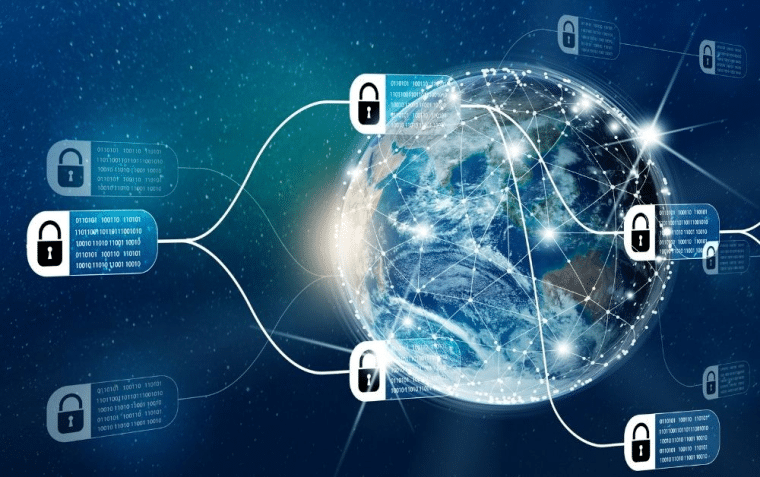
The Global Financial Markets Association (GFMA) has implored financial policy agencies to create a regulatory harmonization ecosystem that fully incorporates distributed ledger technology (DLT) in tokenized securities.
This new technology is touted to create transparent data, seamless automation of digital markets, and cut down over $100 billion in operating expenditures.
Employing DLT Will Merger Corporate Actions and Save Financial Resources
On Tuesday, GFMA, a reputable global representative of traditional finance (TradFi) market industries at the international level, published a report detailing the impacts of distributed ledger technology (DLT) on capital markets.
The TradFi sector lobby sector report, supported by international consulting firms such as the renowned Boston Consulting Group (BCG), urges financial regulators in the digital space to consider the versatility of DLT.
As detailed in the report, DLT has the potential to tokenize up to $16 billion in assets by 2030 and potentially reduce expenditures worth up to $100 billion, freeing up more revenue for other purposes.
Roy Choudhury, the managing director and senior partner of BCG group, iterated that the global infrastructure, financial resource efficiencies, and operation costs could generate a staggering $100 billion annually.
The integration of DLT at a global scale will unlock significant capital. This is because digital technology utilizes smart contracts to automate financial procedures, settle mergers, and lower credit risks.
The published documentation highlights that the main focus is on tokenized securities only, as it does not merge with the volatile market sentiment of the crypto space.
While cryptocurrencies embed security features such as voting rights and revenue shares, tokenized securities are designed to be a digital representation of classical security assets such as bonds or stocks.
The state-of-the-art design and potential impact of DLT in a broad economic structure are cited on page 188 of the report analysis.
Global Financial Markets Association & Boston Consulting Group state that the greatest benefits of emerging technology lie in operational and market-based efficiencies.
These include data transparency, enhanced visibility into market dynamics, and DLT-powered sovereign bonds as an additional layer of liquidity.
By merging DLT with securities or records, sovereign issuers will gain enhanced visibility into ownership, which is highly beneficial.
Enhanced visibility takes center stage as it enables regulators to access real-time information on secondary activities and make data-driven decisions regarding financial stability and systemic risk.
DLT-based bonds provide another liquidity channel for debt markets, which will play a major role in collateral, leading to high turnover and cost-effective collateral sources.
However, the major offerings of DLT are its extensive list of opportunities available to investors seeking fractionalization.
Although promising, these potentials may face challenges due to the strict regulations and frameworks to monitor the overall digital market sphere.
The GFMA report is geared to be a recommendation to regulators to create a space where DLT can thrive. Regulatory harmonization, industrial collaboration, and seamless interoperability will drive the technology forward.
While major banks, notably the central bank of Italy, have integrated DLT into their operations activities, the surging solution-driven technology continues to simplify commercial bank deposits.
DLT versatility can also permeate the pooling liquidity industry beyond expectations. If institutions focus on asset classes, sources of liquidity will be created through DLT, thereby increasing the chances of achieving a viable market.
Adam Farkas, the CEO of GFMA, emphasized that the goal of the public document is to help global policymakers and financial market enthusiasts realize the potential of DLT in ensuring market stability.
Additionally, the technology will enhance security and enable participants in the economy to leverage new technology daily.
At press time, regulatory bodies are yet to comment. However, digital financial and tech analysts believe the capabilities of distributed ledger technology are endless and should be considered.
Related News
-
LA VoIP Provider Sued By FTC For Billions of Illegal Telemarketing Robocalls
-
Uber Would Now Let You Book a Cab Without the App: Here’s How
-
Gautam Adani Net Worth – The Financial Odyssey of an Industrial Titan
What's the Best Crypto to Buy Now?
- B2C Listed the Top Rated Cryptocurrencies for 2023
- Get Early Access to Presales & Private Sales
- KYC Verified & Audited, Public Teams
- Most Voted for Tokens on CoinSniper
- Upcoming Listings on Exchanges, NFT Drops